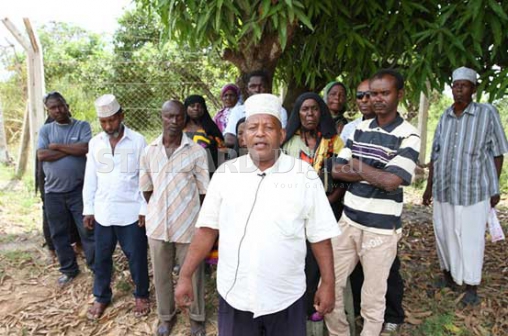×
The Standard e-Paper
Smart Minds Choose Us

Undeterred by the scorching rays of the tropical sun, a group of elderly men and women emerge from the thick and thorny shrubs in Mokowe area of Lamu County. It is 2pm. They are in a spirited search of graves.
With sweat dripping down into the sands, Mzee Ali Shekue raises his head with optimism and hope the crypts, shrines, communal boreholes and other historical marks would fortify their ancestral claim to the vast parcels of land in the area.